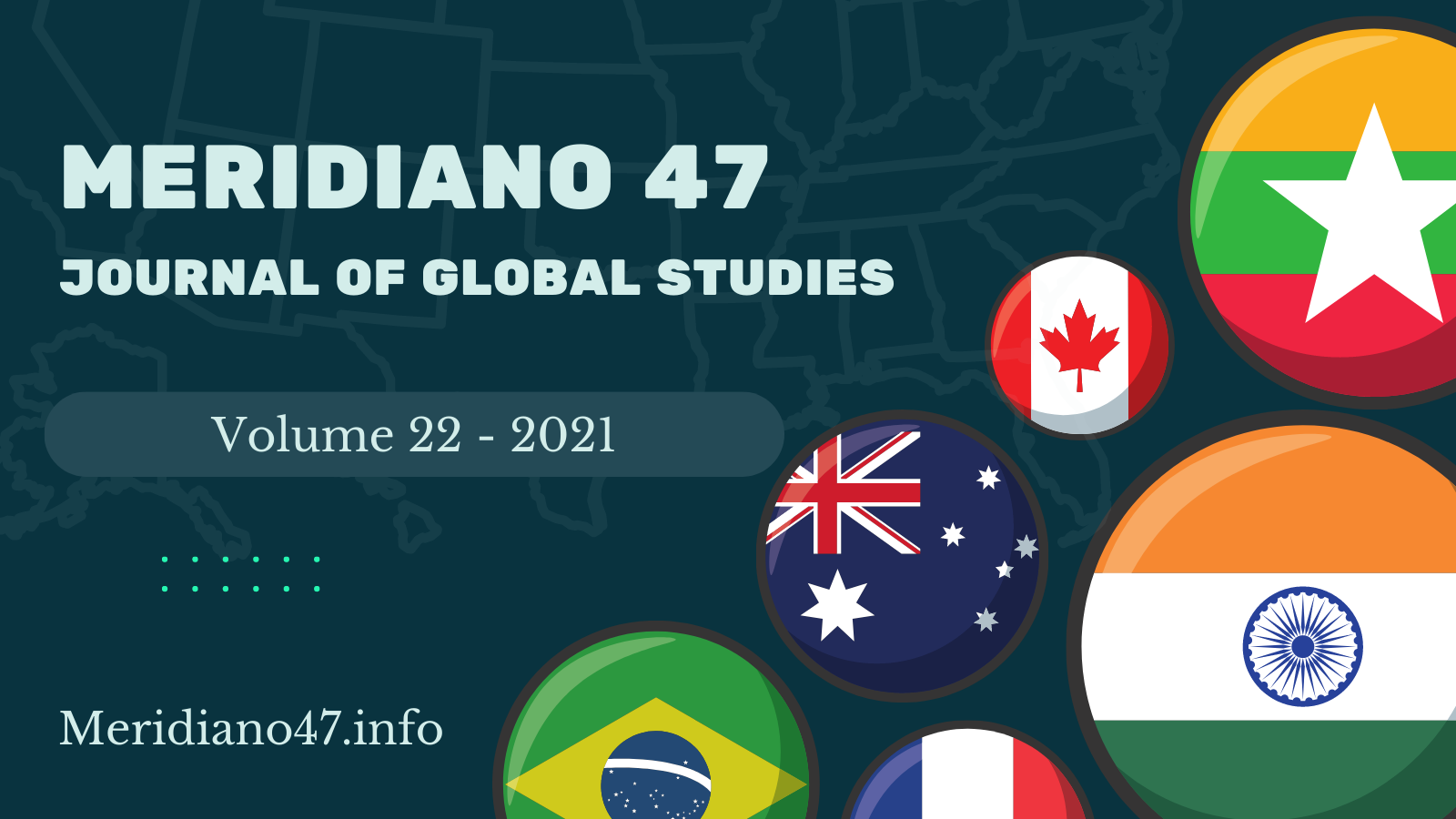O Terceiro Mundo encontra os direitos humanos: a Conferência de Teerã de 1968 revisitada
DOI:
https://doi.org/10.20889/M47e22009Palavras-chave:
direitos humanos, terceiro mundo, ONU, colonizaçãoResumo
O artigo argumenta que a Conferência de Teerã foi um marco na prática discursiva anti-colonial dos direitos humanos construída por diplomatas do terceiro mundo. Baseado em pesquisa documental e em literatura pós-colonial, o artigo mostra as ambivalências da conferência, com novos enquadramentos de direitos humanos e envolvimento de regimes autoritários. Denúncias contra a colonização e racismo apareceram a partir da linguagem dos direitos humanos, assim como a pauta do desenvolvimento.
Referências
Alston, Philip. “Does the Past Matter-On the Origins of Human Rights”. Harvard Law Review, 126 no. 7 (2013): 2043–81.
Alves, Márcio Moreira. 68 mudou o mundo. Rio de Janeiro: Editora Nova Fronteira, 1993.
Anghie, Antony. “Bandung and the origins of Third World Sovereignty”. In Bandung, Global History, and International Law: Critical Pasts and Pending Futures, editado por Luis Eslava, Michael Fakhri e Vasuki Nesiah, 535–51. New York: Cambridge University Press, 2017.
Brett, Annabel S. Liberty, Right and Nature: Individual Rights in Later Scholastic Thought. Cambridge: Cambridge University Press, 1997.
Burke, Roland. “From individual rights to national development: the first UN international conference on human rights, Tehran, 1968”. Journal of World History 19, no. 3 (2008): 275–96.
Burke, Roland.. Decolonization and the evolution of international human rights. Philadelphia: University of Pennsylvania Press, 2010.
Burke, Roland.. “‘How Time Flies’: Celebrating the Universal Declaration of Human Rights in the 1960s”. The International History Review 38, no. 3 (2016): 394–420.
Cançado Trindade, Antônio Augusto. “O processo preparatório da Conferencia Mundial de Direitos Humanos: Viena, 1993”. Revista Brasileira de Política Internacional 36, no. 1 (1993): 1–45.
Cançado Trindade, Antônio Augusto.. A proteção internacional dos direitos humanos e o Brasil, 1948-1997: as primeiras cinco décadas. Brasília: UnB, 2000.
Donnelly, Jack, e Daniel J Whelan. International Human Rights. 6a ed. New York: Routledge, 2020.
Eckel, Jan. The Ambivalence of Good: Human Rights in International Politics Since the 1940s. Oxford: Oxford University Press, 2019.
Forsythe, David P. Human rights in international relations. Cambridge University Press, 2017.
Glendon, Mary Ann. A World Made New: Eleanor Roosevelt and the Universal Declaration of Human Rights. New York: Random House, 2001.
Hunt, Lynn. A invenção dos direitos humanos: uma história. São Paulo: Companhia das Letras, 2009.
Indonésia. Asia-Africa speak from Bandung. Jacarta: Ministry of Foreign Affairs, 1955, p. 161-169.
Irwin, Ryan M. Gordian Knot: Apartheid and the Unmaking of the Liberal World Order. New York: Oxford University Press, 2012.
Jensen, Steven L. B. The making of international human rights: the 1960s, decolonization, and the reconstruction of global values. New York: Cambridge University Press, 2016.
Marchesi, Aldo. Latin America’s Radical Left: Rebellion and Cold War in the Global 1960s. Vol. 107. Cambridge: Cambridge University Press, 2017.
Markarian, Vania. El 68 uruguayo: El movimiento estudiantil entre molotovs y música beat. Buenos Aires: Universidad Nacional de Quilmes Editorial, 2012.
Martinez, Jenny S. The Slave Trade and the Origins of International Human Rights Law. New York: Oxford University Press, 2011.
Morsink, Johannes. The Universal Declaration of Human Rights: origins, drafting, and intent. Philadelphia: University of Pennsylvania Press, 1999.
Moyn, Samuel. The last utopia. Cambridge, MA: Harvard University Press, 2010.
Moyn, Samuel. Not enough: Human rights in an unequal world. Cambridge, MA: Harvard University Press, 2018.
Mutua, Makau. Human rights standards: hegemony, law, and politics. Albany: State University of New York Press, 2016.
ONU. Carta das Nações Unidas, 1945. Disponível em: http://www.planalto.gov.br/ccivil_03/decreto/1930-1949/d19841.htm. Acesso em: 7 de maio de 2021.
ONU. Summary Records of the First to Thirteen Meetings, 22-30 April 1968 (A/CONF.32/SR.1-13). Documento disponível nos Arquivos da Organização das Nações Unidas, Genebra, 1968a.
ONU. Summary Records of the First to Thirteen Meetings, 22 April to 13 May 1968 (A/CONF.32/SR.14-27). Documento disponível nos Arquivos da Organização das Nações Unidas, Genebra, 1968b.
ONU. Tehran Final Act. Disponível em: https://legal.un.org/avl/pdf/ha/fatchr/Final_Act_of_TehranConf.pdf. Acesso em 18 de novembro de 2020, 1968c.
Okafor, Obiora Chinedu. “A regional perspective: article 22 of the African Charter on Human and Peoples’ Rights”. In Realising the right to Development: Implementing the Right to development: Essays in Commemoration of 25 Years of the United Nations Declaration on the Right to Development, editado por OHCHR, 373-384. New York/Geneva: United Nations Publication, 2013.
Okafor, Obiora Chinedu. “The Bandung Ethic and International Human Rights Praxis: Yesterday, Today and Tomorrow”. In Bandung, Global History, and International Law: Critical Pasts and Pending Futures, editado por Luis Eslava, Michael Fakhri e Vasuki Nesiah, 515-532, New York: Cambridge University Press, 2017.
Rajagopal, Balakrishnan. “Counter-hegemonic international law: rethinking human rights and development as a Third World strategy”. Third World Quarterly 27, no. 3 (2006): 767–83.
Richardson-Little, Ned. “From Tehran to Helsinki: the International Year of Human Rights 1968 and State Socialist Eastern Europe”. Diplomatica 1, no. 2 (2019): 180–201.
Sikkink, Kathryn. Evidence for hope: Making human rights work in the 21st century. Princeton: Princeton University Press, 2017.
Skinner, Robert. “The dynamics of anti-apartheid: International solidarity, human rights and decolonization”. In Britain, France and the Decolonization of Africa: Future Imperfect?, editado por Andrew W. M. Smith e Chris Jeppesen, 111–30. London: UCL Press, 2017.
Snyder, Sarah B. “The 1968 International Year for Human Rights: A Missed Opportunity in the United States”. Diplomatic History 42, no. 5 (2018): 831–58.
Thompson, Andrew S. “Tehran 1968 and Reform of the UN Human Rights System”. Journal of Human Rights 14, no. 1 (2015): 84–100.
Tuori, Taina. “From League of Nations Mandates to Decolonization: A History of the Language of Rights in International Law”. Tese de Doutorado, Helsinki: Faculdade de Direito da Universidade de Helsinki, 2016.
Veçoso, Fabia Fernandes Carvalho. “Bandung in the Shadow: the Brazilian Experience”. In Bandung, Global History, and International Law: Critical Pasts and Pending Futures, editado por Luis Eslava, Michael Fakhri e Vasuki Nesiah, 411–28. New York: Cambridge University Press, 2017.
Villey, Michel. O direito e os direitos humanos. São Paulo: WMF Martins Fontes, 2007.
Downloads
Publicado
Edição
Seção
Licença
Copyright (c) 2021 Meridiano 47 - Journal of Global Studies

Este trabalho está licenciado sob uma licença Creative Commons Attribution 4.0 International License.






